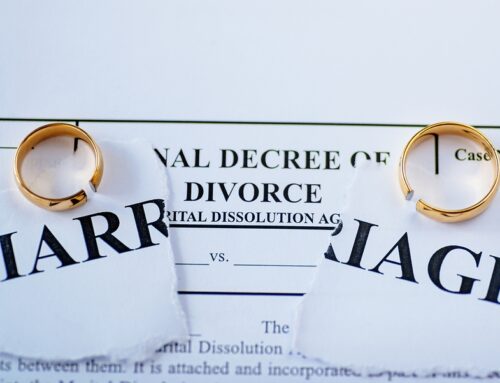A last will is an important and powerful estate planning document. However, there are many things you cannot legally do through a will. Before drawing up your own will, you should know what a will can and can’t do so you can ensure your intentions are carried out.
Note that laws regarding wills vary from state to state. Speak with an estate planning attorney in your state if you have specific questions about what is and is not allowed under the law in your state.
A will can: Direct where assets subject to probate should go.
A will can direct where assets subject to probate go. Probate is the court-supervised process that settles the estate’s debts and taxes and transfers the remaining assets to the appropriate beneficiaries. Common assets subject to probate include:
- Real property solely owned or owned as tenants in common
- Bank and investment accounts without a beneficiary
- Personal property like cars, clothes, and furniture
Learn more about probate in South Carolina here on our blog.
A will cannot: Direct where assets not subject to probate should go.
A will cannot disburse assets that are not subject to probate, such as:
- Real property owned as joint tenants with rights of survivorship
- Payable on Death (POD) or Transfer on Death (TOD) accounts
- 401Ks, IRAs, and other retirement and pension accounts with a named beneficiary
- Life insurance proceeds from a policy with a named beneficiary
- Assets in irrevocable trusts and revocable living trusts
These assets are not subject to probate and go directly to the listed beneficiary or co-owner (in the case of assets owned jointly), bypassing probate altogether. Only if the assets are unable to go to the beneficiary or co-owner – if, for example, they predeceased you – would they end up going through probate.
A will can: Disinherit a blood relative.
A testator has the right to disinherit an adult child, sibling, parent, or any other blood relative in their will. (Whether an individual can legally disinherit a minor child depends on state law.)
A will cannot: Disinherit a spouse.
Spouses are protected under the law and are entitled to a portion of the deceased spouse’s estate after death, regardless of the provisions in the will. The only way to disinherit a spouse is to get their knowing consent in writing, and that must happen separately from the will.
In community property states, the surviving spouse is automatically entitled to the “community property share,” which is one half of the assets acquired during the marriage. Couples in these states may use a prenuptial agreement or postnuptial agreement to waive the surviving spouse’s right to the community property share.
Other states have something called “elective share,” a portion of the deceased spouse’s estate that the surviving spouse is entitled to under the law. This amount varies by state; in South Carolina, it’s one third. The only way to legally disinherit a spouse is for both spouses to sign a waiver of elective share. Read more about how to disinherit a spouse in South Carolina with a waiver of elective share here on our blog.
A will can: Put reasonable conditions on inheritance.
A testator is allowed to put legal, reasonable conditions on inheritance. For instance, a testator may say that their daughter will inherit the lake house when she turns 25 or that their nephew will inherit $50,000 if he earns a college degree by 30.
A will cannot: Put invalid conditions on inheritance.
A testator cannot make inheritance conditional on things that are illegal or that violate public policy. For instance, stipulating that a son will inherit his portion of the estate only if he marries someone of the same race or that a daughter will inherit $100,000 if she divorces her current husband will likely not be honored.
This is case-dependent and varies by state, so if you are considering including questionable stipulations in your will, discuss it first with an experienced estate planning attorney in your state.
A will can: Name individuals to certain roles.
The testator can name the people you’d like to be your personal representative / executor, guardian(s), and trustee(s). Naming people who are fit for the job and who have already agreed to take it on can save time in the probate process.
A will cannot: Obligate individuals to take certain roles.
An individual named in the will is not legally obligate to take on the role and may decline it. In that case, the probate judge will appoint someone else.
For this reason, it’s wise to talk with the individuals you choose to make sure they agree to take on the role and to include a back-up, just in case.
A will can: Help avoid Family Malpractice™.
Family Malpractice™ is a term we use for an individual whose actions or negligence have put their family in a bad legal situation. Most often, this happens as a result of not doing something that should have been done, such as not having a valid will drawn up. Dying without a will is one of the main causes of Family Malpractice™, as it can cause financial hardships, legal challenges, and family rifts for those left behind.
Getting a will is not just about carrying out your wishes after you’re gone, but about protecting your family and their future, too.
Get Help with Your Will and Estate Plan
Do you have a last will in place or are you relying on the government to decide where your assets should go after your death? If you live in South Carolina and you’re looking for help creating or updating a will, call estate planning attorney Gem McDowell. Gem and his team at the Gem McDowell Law Group help individuals and couples in South Carolina create wills and estate plans tailored to their circumstances and needs. Call 843-284-1021 to schedule an appointment or a consultation at the Myrtle Beach or Mount Pleasant, SC office today.





